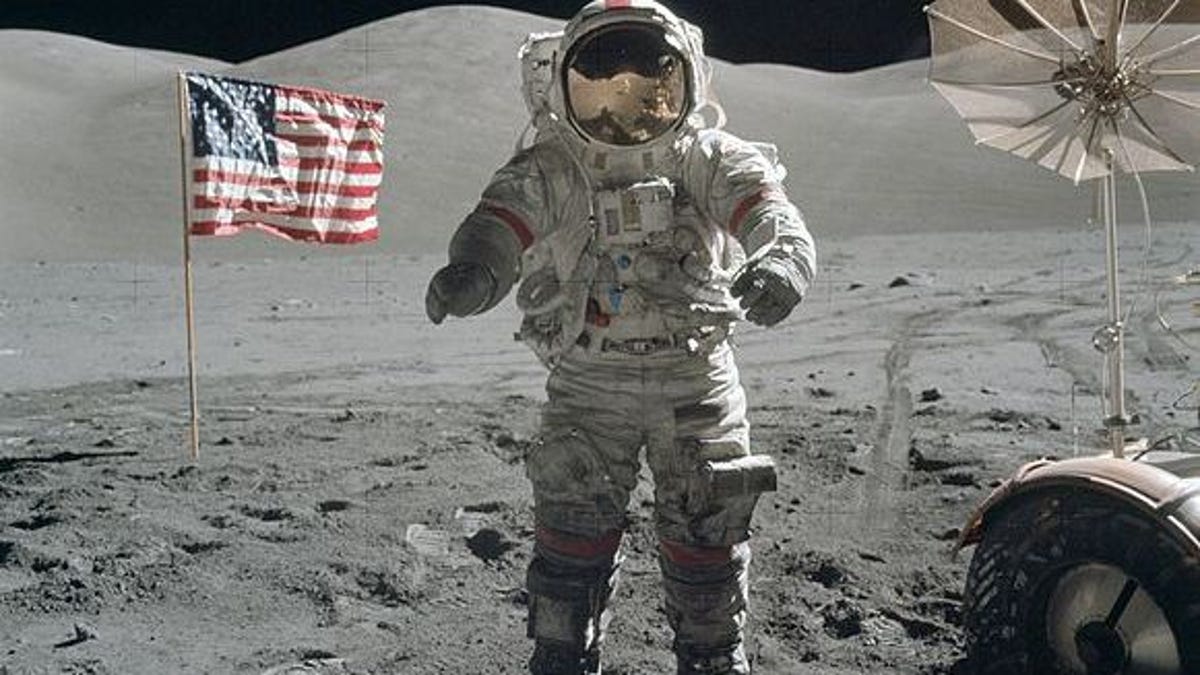PayPal says outer space is its next frontier
Space tourism is expected explode in popularity over the coming years. How will space travelers pick up a drink at the space hotel bar or pay for a dune buggy ride on the moon? PayPal says it will have an answer.

Space architect John Spencer has a grand vision for the future of space travel -- one with luxury space yachts and hotels, and dune buggy racing on the moon.
It's all going to happen in the "not too distant future," the founder of the Space Tourism Society told CNET recently.
"The more people who go, the more diversity, the more things you can do -- the more they need to buy goods and services," he said. "It's limited to what they can do now because of the cost and limited time on board the space system, but that's going to grow as we have more facilities and more people."
Travel to the final frontier has heated up in the last decade and everybody wants a piece of the action. Billionaires like Microsoft co-founder Paul Allen, Amazon founder Jeff Bezos, and Telsa CEO Elon Musk are pouring their resources into space tourism (most of these guys are also sponsoring the Space Tourism Society to help promote space travel).
As Spencer puts it, the time for the "space renaissance," an uberluxury travel experience, is upon us. And, eventually, people will need a way to pay for it all.
That's where PayPal wants to come in. The tech company is working with Spencer, and organizations like Search for Extraterrestrial Intelligence (SETI), to launch a galactic money transfer initiative in hopes of shaping what spending money in space will look like. Spencer will join PayPal, famed astronaut Buzz Aldrin, and SETI at the SETI Institute in Mountain View, Calif., on Thursday to kick off the discussion.
PayPal CEO David Marcus said there has yet to be a discussion about how people will make payments from space. Currently, NASA provides a team of people to help astronauts pay for bills and make purchases while they are traveling in space, according to Marcus.
"There's about a thousand people on Earth, literally a thousand people, who look after the astronaut on the ground," he said.
Though the satellites that help us make those payments electronically are located in space, it's not as simple as people may think and there are a lot of questions, Marcus said. Companies still need to develop a process and governments need to decide on regulations and what unit of currency space travelers will use.
"If you bring your phone, what network do you connect to? Which mobile carry will bring mobile payments to space and how? A lot of these questions need to be answered and that's why we are doing this," he said.
Though it may seem far away, Marcus said space tourism, and the need to pay for things in space, is rapidly approaching as the price of a seat on a spaceship continues to drop.
The first man to travel to space as a tourist, Dennis Tito, paid $20 million in 2001. Celebrities, paying $200,000 apiece, are lined up for Virgin Galactic's maiden voyage, expected as early as next year. And, a couple of companies in Canada were recently promoting more, uh, affordable space travel options, ranging between roughly $95,000 and $140,000. Russian firm Orbital Technologies has said it will open a space hotel in 2016.
"You're in the space hotel three years from now and you want to buy your morning coffee," Marcus said. "What government is going to regulate that purchase?"
Though Marcus said he wants the conversation to be all-inclusive, which means he welcomes the participation of competitors like Square and Intuit, taking the first leap of faith is probably a good way to be seen as a pioneer in uncharted waters.
Spencer is glad PayPal has taken up the torch to start the discussions. Those conversations will get at his big picture for the world beyond Earth. He said some of this new infrastructure can be modeled after maritime law, which lets governments decide on the boundaries out at sea, but there need to be laws tailored to outer space. He knows it won't be as big as the cruise line industry, since most people won't be able to afford it -- in this century, at least -- but it will be a lucrative, and wondrous, type of vacation. And somebody will have to figure out how to pay for it.
Correction, June 27 at 9:52 a.m. PT: The original version of this story said NASA is among the organizations with which PayPal is working to launch a galactic money transfer initiative. That's not the case.

